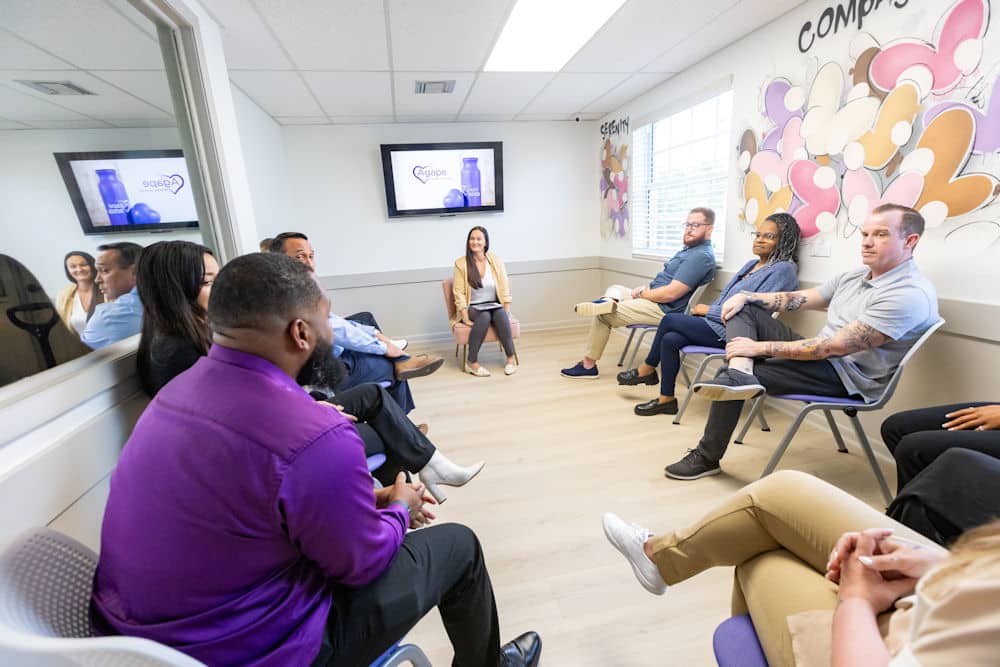Table of Contents
ToggleCan Stress Cause a Relapse?
According to a recent study, somewhere between 40 and 60 percent of men and women who have been treated for alcoholism or drug addiction will relapse within the first year of their sobriety. Sadly, an even greater number will relapse after the first year. Why are relapse rates so high, and what can be done to prevent an eventual return to substance use? One of the most crucial factors – that plays a vital role in relapse prevention – is the ability to identify and effectively work through your relapse triggers. It is also crucial to understand that addiction is a chronic and relapsing brain disease and that a solid and personalized recovery program must closely adhere to long-term sobriety to be maintained.
No one wakes up one day and finds that they are “cured” of their addiction – to stay sober, you must consistently do what you know works for you. This could include a continuation of one-on-one therapy, daily attendance at 12-step meetings, and psychiatric medication used to treat an underlying mental illness like anxiety or depression. Over time, you will identify what works to keep you sober – and to maintain sobriety, you must adhere to your personalized aftercare plan.
Identifying and Working Through Relapse Triggers
Now – back to relapse prevention and potential relapse triggers. The more time you spend in addiction recovery, the more personal triggers you will identify. You might find that spending any time in a bar pushes you close to the edge, instigating the old mental obsession about alcohol consumption. You might find that spending extended periods with your harshly dysfunctional family is your biggest relapse trigger – or that, for whatever reason, traveling by plane and spending any amount of time in an airport makes you want to drink.
Whatever your relapse triggers are, you will learn how to identify and avoid them – and if they are unavoidable, you will learn how to successfully work through them. Some of your triggers will be extremely unique to you – some are generally the same across the board. For example, you may have heard the phrase “H.A.L.T. – hungry, angry, lonely, tired.” Hunger, angriness and agitation, loneliness, and physical exhaustion are all common relapse triggers. If you ever feel like drinking or using, it is a good idea to check in with yourself and make sure you are not experiencing any of the above. If you are, take care of it as quickly as possible. Stress is another common relapse trigger, and experiencing exceptionally high-stress levels for any prolonged period often leads to a return to substance use when the stress levels are not adequately addressed.
Stress and Relapse
One of the most common relapse triggers is stress – no one enjoys being stressed out, and many individuals who grappled with drug and alcohol use became all too used to reaching for their substance of choice whenever things became difficult to manage. Unfortunately, stressful situations cannot be avoided altogether. There will be a time when you are stuck in traffic 10 minutes before an important appointment, or when someone you care about deeply is going through an adverse situation and no matter how hard you try you can’t seem to help. Stress is a part of life – however, it does not need to dictate how you run your life. You must learn positive ways to effectively manage stress levels so that you avoid reverting to substance use to alleviate this uncomfortable feeling. Some examples of ways to better manage stress include:
- Practice mindfulness and participate in meditation for at least 30 minutes every day
- Manage your time more effectively – if it helps, invest in a daily planner and do what you can to budget your time realistically
- Try not to constantly operate in panic mode – evaluate the stressful situation that you are currently in
- Take care of your body by incorporating exercise into your daily routine and eating healthy whenever possible
- Make sure you have your priorities adequately mapped out
Agape Treatment Center and Relapse Prevention
At Agape Treatment Center, we put a strong emphasis on identifying relapse triggers and learning to effectively work through all uncomfortable emotions – including stress. There are many effective stress reduction techniques that we work to teach our clients, including controlled breathing, mindfulness meditation, and simple communication skills. Simply talking through a stressful situation with a trusted sober friend can make all of the difference in the world. For more information on our comprehensive addiction recovery program, or to learn more about stress reduction, reach out to us today.







